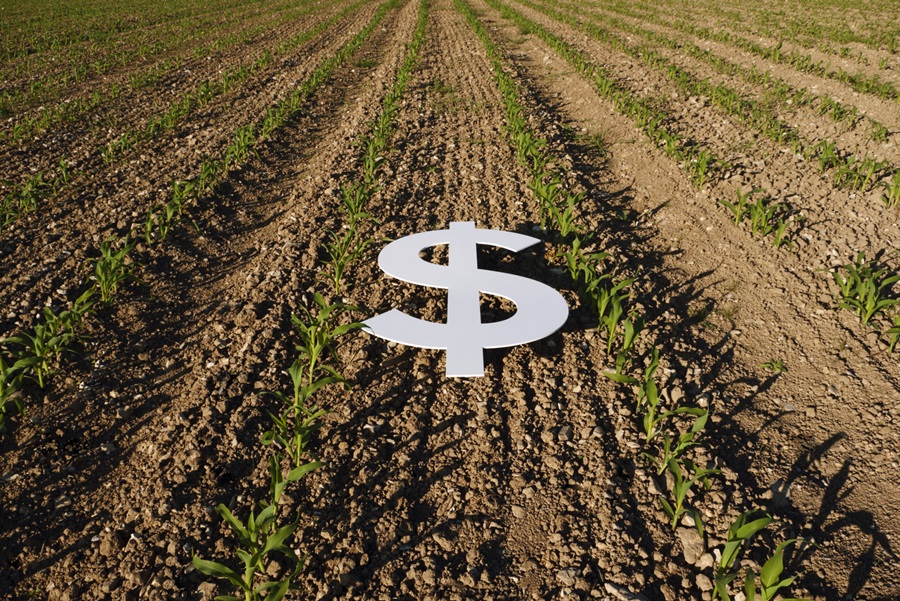Is farming/seeds/milling a good career path? Many individuals ponder this question when considering their professional trajectory. The agricultural sector offers a range of opportunities, from cultivating crops to working with seeds and engaging in the milling process. For those with a passion for agriculture and a desire to contribute to the food production industry, this field can hold immense potential for a fulfilling and rewarding career.
What Is Agriculture/Farming?
Agriculture, also known as farming, is the practice of cultivating plants, raising animals, and other related activities involved in the production of food, fiber, and other agricultural products. It is a vital industry that plays a significant role in providing sustenance and raw materials for human consumption and various industries.
Agriculture encompasses a wide range of practices and techniques, including crop cultivation, animal husbandry, horticulture, aquaculture, and agribusiness. Farmers employ various methods to grow crops and rear livestock, such as using land, water, fertilizers, pesticides, and machinery. They also apply scientific knowledge and innovative technologies to enhance productivity, improve efficiency, and ensure sustainable practices.
The agricultural sector is fundamental to global food security and economic development. It not only provides essential food and resources but also supports livelihoods for millions of people worldwide. Additionally, agriculture contributes to the overall health of the environment by preserving natural resources, conserving biodiversity, and mitigating climate change through sustainable farming practices.
Is Farming/Seeds/Milling A Good Career Path?
Farming, seeds, and milling can indeed be excellent career paths for individuals interested in agriculture and its associated industries. These career paths offer a wide range of opportunities and benefits, both financially and personally. Let's explore the reasons why pursuing a career in farming, seeds, or milling can be a rewarding choice.
1. Fulfilling And Meaningful Work
Working in agriculture allows individuals to make a tangible impact on society by contributing to food production and ensuring a stable food supply. Farmers, seed producers, and millers play vital roles in feeding the world's growing population and meeting the demand for quality food products. Knowing that your work directly impacts people's lives can provide a sense of fulfillment and purpose.
2. Diverse Job Opportunities
The agricultural sector offers a diverse array of career options. From operating a farm or seed production facility to managing milling operations, there are numerous roles available. Careers in farming can range from crop production, livestock management, organic farming, or specialized sectors like viticulture (grape cultivation) or aquaponics. Similarly, seed production offers opportunities in research, development, seed processing, and sales. Milling careers can involve grain processing, flour production, or other value-added processes.
3. Job Stability And Growth
Agriculture is a fundamental industry that is unlikely to diminish in importance. As long as humans require food and agricultural products, there will be a need for farmers, seed producers, and millers. This stability provides job security and the potential for long-term career growth. Moreover, with the growing global population, the demand for agricultural products is expected to increase, creating new opportunities for those in the sector.
4. Financial Rewards
While income levels can vary depending on factors such as experience, location, and job position, careers in farming, seeds, and milling can offer competitive salaries. According to ZipRecruiter, some of the highest-paying jobs in agriculture include agricultural engineers (with an average salary of $81,480 per year), agricultural operations managers (average salary of $77,300 per year), and agricultural economists (with an average salary of $74,860 per year).
5. Technological Advancements
Modern agriculture has embraced technological advancements to increase productivity, efficiency, and sustainability. Precision farming techniques, such as using drones and GPS technology, have revolutionized crop management. Seed production has seen advancements in breeding techniques, genetic engineering, and seed treatment technologies. Milling operations have also benefited from automation and advanced processing equipment. Embracing these technologies provides opportunities for continuous learning and skill development.
6. Entrepreneurial Opportunities
A career in farming, seeds, or milling can also lead to entrepreneurial ventures. Many individuals choose to start their own farms, seed production companies, or milling operations. This allows them to have greater control over their work, implement innovative practices, and potentially generate higher income. Entrepreneurship in agriculture requires a strong businessacumen combined with specialized knowledge of the industry.
7. Environmental Stewardship
Sustainable farming practices are gaining increasing importance as the need to protect the environment becomes more evident. Farmers, seed producers, and millers have the opportunity to contribute to environmental stewardship by implementing practices that reduce resource consumption, minimize waste, and promote biodiversity. This aspect of the career can be personally rewarding for individuals passionate about sustainable agriculture and conservation.
In summary, farming, seeds, and milling offer promising career paths with fulfilling work, diverse job opportunities, job stability, potential financial rewards, technological advancements, entrepreneurial possibilities, and the ability to contribute to environmental sustainability.
25 Best Paying Jobs In Farming/Seeds/Milling
The farming, seeds, and milling industries encompass a range of roles, each with its unique requirements and salary potentials. Here are 25 of the best-paying jobs in these fields, along with their respective average salaries:
- Agricultural Engineer- $81,480 per year
- Agricultural Operations Manager- $77,300 per year
- Agricultural Economist- $74,860 per year
- Farm Manager - $71,160 per year
- Agricultural Sales Representative- $66,360 per year
- Seed Production Manager - $64,000 per year
- Milling Operations Manager- $62,240 per year
- Precision Agriculture Specialist - $61,040 per year
- Agricultural Consultant- $59,570 per year
- Seed Breeder - $58,040 per year
- Food Scientist- $57,460 per year
- Crop Research Scientist - $55,280 per year
- Livestock Geneticist - $54,800 per year
- Grain Buyer - $53,400 per year
- Agricultural Inspector - $51,860 per year
- Soil and Plant Scientist - $50,830 per year
- Milling Machine Operator- $48,200 per year
- Seed Analyst- $47,480 per year
- Agricultural Technician- $46,020 per year
- Livestock Nutritionist- $44,760 per year
- Quality Control Inspector - $43,860 per year
- Farm Equipment Mechanic- $42,980 per year
- Crop Consultant- $41,920 per year
- Seed Treatment Specialist - $40,240 per year
- Milling Machine Setter- $38,760 per year
These salaries are approximate averages and can vary depending on factors such as location, experience, and the size of the operation. It's worth noting that salaries may also increase with additional qualifications, certifications, or specialized expertise.
What Education Do You Need To Become Farming/Seeds/Milling?

Is an Agriculture Degree Worth It?
The educational requirements for a career in farming, seeds, or milling can vary depending on the specific role and level of responsibility. While some positions may only require a high school diploma or equivalent, many roles benefit from specialized education and training.
High School Level
At a minimum, a high school diploma or GED is typically required to enter the farming, seeds, or milling industry. High school coursework in agricultural sciences, biology, chemistry, mathematics, and businesscan provide a solid foundation for further education and practical application in these fields.
Associate's Degree
Obtaining an associate's degree in a field related to agriculture, such as agricultural science, agribusiness, crop production, or animal science, can enhance job prospects and provide a more comprehensive understanding of the industry. Associate's degree programs typically take two years to complete and may include coursework in agronomy, soil science, genetics, livestock management, and business fundamentals.
Bachelor's Degree
A bachelor's degree in agricultural science, agronomy, plant science, agricultural engineering, or a related field is often required for more advanced positions or roles involving research, management, or specialized expertise. A four-year bachelor's degree program provides in-depth knowledge of plant and animal biology, crop production, pest management, soil science, genetics, farm management, and agricultural economics. This level of education can open doors to higher-paying and more specialized careers within the industry.
Master's Degree And Ph.D.
For individuals interested in research, academia, or advanced leadershiproles, pursuing a master's or doctoral degree in agriculture or a related field can be beneficial. These advanced degrees allow individuals to specialize in areas such as crop genetics, agricultural engineering, plant pathology, or food science. Graduates with advanced degrees often have opportunities for higher-level positions, research and development roles, or teaching positions at universities or research institutions.
Vocational And Technical Training
In addition to formal education, vocational and technical training programs can provide practical skills and hands-on experience in specific areas of agriculture, seeds, or milling. These programs often focus on specialized topics such as machinery operation, seed processing, precision farming technologies, or milling operations. Vocational training can be a valuable complement to formal education and can enhance employability in specific sectors of the industry.
It's important to note that the specific educational requirements may vary depending on the region, employer preferences, and the nature of the job. Some roles may prioritize hands-on experience and practical skills over formal education, while others may require a combination of both.
What Are The Importance Of Milling?
Milling plays a crucial role in the agriculture industry, particularly in the processing and refinement of agricultural products. Let's explore the importance of milling in more detail:
Food Processing And Value Addition
Milling is essential for transforming raw agricultural commodities, such as grains, into value-added food products. It involves processes such as cleaning, sorting, grinding, and separating the edible components from the non-edible ones.
Milling not only improves the texture and flavor of food products but also enhances their nutritional value and extends their shelf life. Common milled products include flour, rice, cornmeal, oats, and various other grain-based ingredients used in the production of bread, pasta, cereals, and snacks.
Increased Nutritional Value
Milling can contribute to improving the nutritional value of food products. For example, in the milling of grains like wheat, the removal of the outer husk or bran exposes the endosperm, which contains the majority of the grain's starch and protein.
By separating the endosperm from the bran and germ, milling produces refined flour that is rich in carbohydrates and protein while removing some of the dietary fiber. This refined flour is often further enriched with vitamins and minerals to compensate for the nutrient loss during processing.
Enhanced Digestibility
The milling process can improve the digestibility of certain agricultural products. By breaking down complex carbohydrates into simpler forms, milling makes the nutrients more accessible for digestion. This can be particularly beneficial for individuals with digestive sensitivities or dietary restrictions. Milling also reduces the particle size of grains, making them easier to cook and consume.
Food Safety And Quality Control
Milling operations contribute to ensuring food safety and quality control. Proper milling practices involve rigorous quality testing, including inspections for contaminants, such as foreign objects, toxins, or microorganisms. Through effective quality control measures, milling facilities can identify and eliminate potentially harmful substances, ensuring that the final products meet regulatory standards and consumer expectations.
Waste Reduction And Sustainability
Milling can also contribute to waste reduction and sustainability efforts. By processing agricultural products efficiently, milling minimizes waste by utilizing the maximum edible portion of the crop and finding alternative uses for by-products or waste materials.
Additionally, modern milling facilities often implement energy-efficient technologies and sustainable practices to reduce their environmental impact, such as optimizing water usage, managing waste disposal responsibly, and implementing renewable energy sources.
Economic Impact
The milling industry has a significant economic impact, both locally and globally. It provides employment opportunities and supports a network of farmers, suppliers, and distributors. By adding value to agricultural products, milling contributes to the overall profitability of the agriculture sector. It also facilitates international trade and the export of milled products, generating revenue for countries and stimulating economic growth.

Role of Agriculture in Economic Development
What Are The Various Processes Of Farming?
Farming encompasses a range of processes involved in the cultivation of crops and the rearing of animals. Let's explore the various processes of farming:
Land Preparation
The farming process begins with land preparation, which involves clearing the land of vegetation, rocks, and debris. Farmers may use machinery, such as tractors or plows, to till the soil, break up clumps, and create a suitable seedbed for planting. Land preparation also includes activities like leveling the terrain, installing irrigation systems, and implementing soil conservation measures.
Crop Selection And Seed Planting
Farmers select the appropriate crops based on factors such as climate, soil conditions, market demand, and personal preferences. They choose high-quality seeds that are well-suited to the chosen crops and their growing conditions. Seed planting methods can vary depending on the crop, but common techniques include direct seeding, transplanting seedlings, or using specialized machinery like seed drills or planters.
Crop Care And Management
Once the crops are planted, farmers engage in various practices to ensure their proper growth and development. These practices include:
- Irrigation - Providing plants with adequate water through methods such as sprinklers, drip irrigation, or flood irrigation.
- Fertilization - Applying fertilizers to the soil to provide essential nutrients that may be deficient.
- Weed Control- Managing weeds through methods like manual removal, mulching, or using herbicides.
- Pest and Disease Management- Monitoring crops for pests and diseases and employing appropriate control measures, including biological controls, integrated pest management (IPM) techniques, or targeted pesticide application.
- Crop Rotation- Rotating crops in a planned sequence to manage pests, diseases, and nutrient depletion.
Harvesting
Harvesting is the process of gathering mature crops from the field. The timing of harvest is critical, as it directly affects the quality and yield of the produce. Farmers employ various methods for harvesting different crops, such as hand-picking fruits or vegetables, using combine harvesters for grains, or using specialized machinery for crops like sugarcane or cotton.
Post-Harvest Management
After harvest, farmers engage in post-harvest management activities to preserve the quality and value of the produce. These activities include cleaning, grading, sorting, packaging, and storing the harvested crops. Post-harvest practices also involve techniques such as cooling, drying, and applying appropriate treatments to prevent spoilage, maintain freshness, and extend the shelf life of the produce.
Livestock Rearing And Management
Livestock farming involves the rearing and management of animals for various purposes, including meat, milk, eggs, and other products. Livestock farmers provide appropriate housing, nutrition, healthcare, and breeding management to ensure the health and productivity of the animals. This process also involves activities like milking, shearing, or managing animal waste.
Marketing And Distribution
Marketing and distribution are crucial processes in farming, ensuring that the produced crops or livestock products reach consumers effectively. Farmers may engage in direct selling through farmers' markets, community-supported agriculture (CSA) programs, or online platforms. They may also work with distributors, wholesalers, or retailers to reach larger markets and supply chain networks.
Types Of Jobs In Farming/Seeds/Milling
The farming, seeds, and milling industries offer a wide range of job opportunities. Let's explore some of the common types of jobs within these sectors:
Farm Manager/Operator
Farm managers or operators are responsible for overseeing all aspects of farm operations. They plan and manage crop production, livestock rearing, and general farm activities. This role involves making decisions regarding crop selection, land use, equipment maintenance, hiring and managing farm workers, financial management, and marketing.
Agricultural Sales Representative
Agricultural sales representatives act as intermediaries between agricultural product suppliers and buyers. They promote and sell products such as seeds, fertilizers, pesticides, machinery, or livestock feed. This role requires good communication skills, product knowledge, and the ability to build and maintain relationships with customers.
Seed Production Manager
Seed production managers oversee the production, processing, and distribution of seeds. They ensure the quality and quantity of seed production, manage seed purity and certification, and implement quality control measures. This role involves coordinating with seed breeders, field supervisors, and seed processing facilities.
Milling Operations Manager
Milling operations managers are responsible for overseeing the milling processes, ensuring efficient and safe operations, and maintaining product quality. They manage milling facilities, supervise milling machine operators, implement quality control procedures, and optimize production processes.
Precision Agriculture Specialist
Precision agriculture specialists utilize advanced technologies, such as GPS, remote sensing, and data analytics, to optimize farming practices. They collect and analyze data to make informed decisions regarding seed planting, fertilization, irrigation, and pest management. This role involves expertise in precision farming technologies and the ability to interpret and apply data for improved farm management.
Agricultural Consultant
Agricultural consultants provide expert advice and guidance to farmers and agricultural businesses. They assess farm operations, identify areas for improvement, and recommend strategies to increase productivity, efficiency, and profitability. Agricultural consultants may specialize in areas such as soil management, crop production, livestock management, or sustainable farming practices.
Food Scientist
Food scientists work in research and development to improve food products, develop new formulations, and enhance food safety and quality. They study the chemical, physical, and biological properties of agricultural products, develop processing techniques, and analyze nutritional content. Food scientists often work in collaboration with farmers, millers, and food manufacturers.
These are just a few examples of the diverse job opportunities available in farming, seeds, and milling. Other roles include agricultural engineers, crop researchers, livestock managers, soil and plant scientists, agricultural inspectors, and more. The industry offers opportunities for various skill sets and interests, ranging from hands-on fieldwork to research and technology-driven roles.
People Also Ask
Which Agriculture Course Is Most Profitable?
The most profitable agriculture courses include food science, agricultural engineering, agricultural operations management, environmental engineering, and agricultural economics.
Which Course Is Best For Future In Agriculture?
For a promising future in agriculture, the top courses to consider are BSc Fisheries, BSc Crop Physiology, BBA in Agricultural Management, MSc Agricultural Production, MBA in Agriculture, MSc Agronomy, MSc Agriculture, and MSc in Integrated Plant and Animal Breeding.
What Is The Best Career In Agriculture?
The best careers in agriculture include agricultural engineering, agricultural economics, farm management, soil and plant science, conservation planning, commercial horticulture, and agricultural sales.
Conclusion
Is farming/seeds/milling a good career path? Farming, seeds, and milling provide promising career paths with numerous opportunities, competitive salaries, and the chance to contribute to food production, sustainability, and economic growth. Whether individuals choose to become farmers, seed producers, millers, or pursue other related professions, they can find fulfillment in a rewarding industry that plays a vital role in society.


